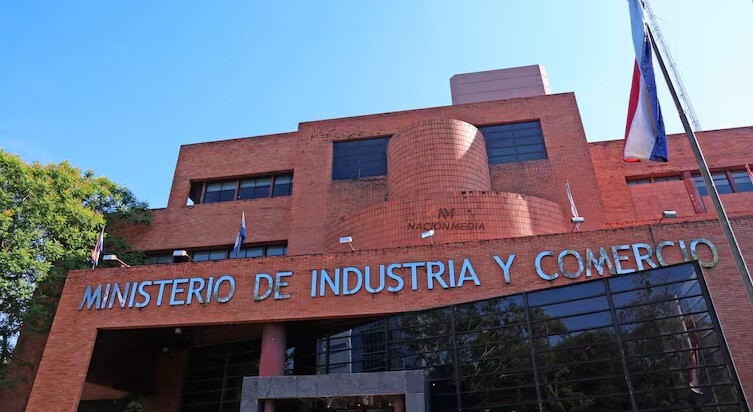
ASUNCIÓN, Paraguay – Paraguay could actively pursue attracting investment by capitalizing on the new international trade environment resulting from the recent U.S. reciprocal tariff adjustments, according to projections. Rodrigo Maluff, Vice Minister of Industry and Commerce (MIC) for Commerce and Services, and Marco Riquelme, Vice Minister of Industry, emphasized that the changes in U.S. tariff policy could offer attractive opportunities for countries with friendly relations with the U.S., such as Paraguay, to relocate production bases. In particular, they analyzed that companies from countries previously subject to high tariffs might consider moving their production facilities to Paraguay.
Vice Minister Maluff assessed that Paraguay is already familiar with these U.S. trade measures, and a 10% tariff increase is a manageable level. He argued that this situation should rather be used as an opportunity to attract investment from other countries. While the meat industry is not expected to be significantly affected in the short term, considering the difficulty of immediate changes in the U.S. production base, he added that Paraguay should increase its utilization of U.S. quotas and actively encourage U.S. and other countries' companies to invest in Paraguay for production and subsequent export to global markets. Currently, the MIC is closely analyzing the impact on each industrial sector and item and is focusing on preparing countermeasures for the current changes in the trade environment.
Meanwhile, Vice Minister Riquelme projected that companies with high export capabilities would not easily withdraw their businesses but would seek countries with trade deficits with the U.S. and positive relations with the U.S. Paraguay meets these conditions, which could help Paraguayan companies diversify their markets and minimize the impact of new tariff barriers. Vice Minister Riquelme stated, "Our strategy should focus on attracting investment by highlighting the advantages Paraguay offers, such as a young workforce, tax benefits, and low energy costs."
Although exports to the U.S. do not constitute a large portion of Paraguay's Gross Domestic Product (GDP), Vice Minister Riquelme emphasized the importance of adapting to changes in the global trade environment. To this end, the Paraguayan government is particularly focusing on strengthening its competitiveness within MERCOSUR. Paraguay records an annual trade surplus of $2.5 billion with MERCOSUR, driven by electricity and raw material exports.
However, Vice Minister Riquelme pointed out that Paraguay experiences a significant trade deficit with MERCOSUR in manufactured goods, which he stressed is an urgent issue to resolve to improve Paraguay's trade structure. He added, "Our goal is to resolve this trade imbalance and attract more investment to revitalize domestic industries."
Background on U.S. Tariff Policy Changes: Recently, the U.S. announced a policy of readjusting reciprocal tariffs on some countries, aiming to protect its domestic industries and reduce trade imbalances. This means increasing tariffs on imports from specific countries and taking measures corresponding to the tariff levels those countries impose on U.S. products.
Paraguay's Strengths in Attracting Investment: Paraguay possesses favorable conditions for attracting investment within South America, including low corporate tax rates, low electricity costs due to abundant hydropower resources, and a young, skilled workforce. Furthermore, its membership in MERCOSUR provides easy access to the regional market.
Potential Investment Sectors: Manufacturing companies from countries that may be hit by U.S. tariff increases could be targets for Paraguay's investment attraction efforts. In particular, industries with a high proportion of exports to the U.S. are likely to consider relocating their production bases to Paraguay. For example, efforts to attract investment in sectors such as textiles, auto parts, and electronics could be strengthened.
Government Tasks: For Paraguay to capitalize on the opportunity presented by the U.S. tariff policy changes, active efforts at the government level are necessary, including strengthening investment incentives, improving the investment environment, and expanding related infrastructure. Additionally, it is important to establish a strategy to effectively promote Paraguay's investment attractiveness to potential investors.
If Paraguay effectively utilizes these opportunities, it is expected to have a positive impact on attracting foreign direct investment, revitalizing domestic industries, and promoting long-term economic growth.
[Copyright (c) Global Economic Times. All Rights Reserved.]






























